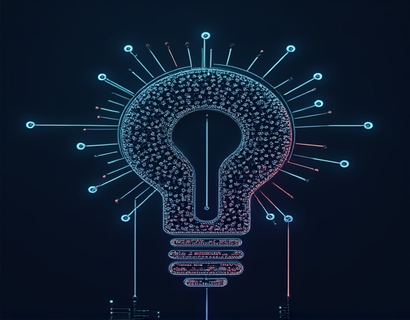AI Chat Interface: Simplifying Legal Insights and Lawyer Connections for Users and Professionals
The integration of artificial intelligence in the legal sector has ushered in a new era of accessibility and efficiency, particularly through the development of AI chat interfaces. These interfaces serve as a bridge between users seeking legal advice and the vast ocean of legal knowledge and services available. By leveraging intelligent AI technology, these platforms are transforming the way legal access is delivered, making it more user-friendly and efficient for both individuals and professionals.
Understanding the Role of AI in Legal Access
AI chat interfaces are designed to simplify complex legal processes by providing users with immediate and accurate information. These interfaces utilize natural language processing and machine learning algorithms to understand user queries and provide relevant responses. The primary goal is to demystify legal jargon and make legal insights accessible to a broader audience, thereby empowering users to make informed decisions.
Streamlining Access to Legal Information
One of the most significant benefits of AI chat interfaces in the legal domain is their ability to streamline access to legal information. Users can ask questions about various legal topics, from contract law to intellectual property, and receive concise explanations and guidance. This immediate access to information reduces the time and effort required to navigate through legal resources, making the process more efficient and user-friendly.
For instance, a user seeking information on the steps involved in filing a patent can interact with the AI chat interface to get a step-by-step guide. The interface can provide detailed explanations, highlight key points, and even suggest further resources or reading materials. This level of interactivity ensures that users not only receive the information they need but also understand it thoroughly.
Enhancing Lawyer Connections
AI chat interfaces also play a crucial role in connecting users with the right legal professionals. By analyzing user queries and preferences, the AI can recommend suitable lawyers or legal experts who can address specific needs. This personalized approach ensures that users are matched with professionals who have the necessary expertise and experience in their area of concern.
The process begins with the user inputting their legal issue or requirement. The AI then cross-references this information with a database of licensed attorneys, considering factors such as specialization, location, and client reviews. The interface can then present a list of recommended lawyers, complete with contact information and brief descriptions of their expertise. This streamlined process saves users time and helps them find reliable legal assistance more easily.
Building Trust Through Transparency
Trust is a critical component in the lawyer-client relationship, and AI chat interfaces can help build this trust through transparency. By providing detailed profiles of recommended lawyers, including their qualifications, experience, and client feedback, the AI ensures that users have all the necessary information to make an informed decision. This level of transparency not only enhances user confidence but also promotes accountability within the legal profession.
Moreover, the AI can offer insights into the typical costs and timelines associated with different legal services, helping users budget and plan accordingly. This proactive approach to disclosure helps mitigate potential misunderstandings and ensures a smoother client-attorney interaction.
Empowering Individuals and Professionals
The impact of AI chat interfaces extends beyond just providing legal information and connecting users with lawyers. These platforms empower individuals and professionals by equipping them with the knowledge and tools needed to navigate the legal landscape confidently. For small business owners, for example, understanding contract terms and compliance requirements is essential for legal compliance and risk management. AI chat interfaces can offer simplified explanations and checklists to guide them through these processes.
Professionals in various fields, such as human resources or finance, can also benefit from these interfaces by gaining insights into employment law, data protection regulations, and other relevant legal topics. This knowledge enables them to make informed decisions and protect their organizations from potential legal issues.
Advantages for Legal Professionals
While AI chat interfaces primarily benefit users, they also offer significant advantages for legal professionals. By automating routine inquiries and providing a centralized platform for client interactions, lawyers can focus more on high-value tasks such as case preparation and client counseling. This efficiency gain can lead to increased productivity and better client satisfaction.
Additionally, the data generated from user interactions can provide valuable insights into common legal queries and trends. Legal professionals can use this information to refine their services, develop targeted marketing strategies, and stay ahead of industry changes. The AI can also assist in managing case files, scheduling appointments, and sending reminders, further enhancing the operational efficiency of law firms.
Challenges and Considerations
Despite the numerous benefits, the implementation of AI chat interfaces in the legal sector is not without challenges. One of the primary concerns is ensuring the accuracy and reliability of the information provided. Legal matters are complex and context-dependent, and AI systems must be rigorously trained and continuously updated to handle the nuances of different legal scenarios. Regular audits and user feedback mechanisms are essential to maintain the quality of the information.
Another consideration is the need for robust privacy and security measures. Legal information is sensitive, and users must trust that their data is handled with the utmost care. Implementing strong encryption, compliance with data protection regulations, and transparent privacy policies are crucial to building and maintaining user trust.
Future Prospects
The future of AI chat interfaces in the legal sector looks promising, with ongoing advancements in AI technology poised to enhance their capabilities further. Integration with other legal tools and platforms, such as document management systems and legal research databases, can create a more seamless and comprehensive legal ecosystem. The potential for AI to assist in legal writing, contract analysis, and even predictive legal outcomes is also an exciting area of development.
As the legal industry continues to embrace digital transformation, AI chat interfaces will likely become an indispensable tool for both users and legal professionals. By fostering greater accessibility, efficiency, and trust, these interfaces are set to play a pivotal role in shaping the future of legal services.










































